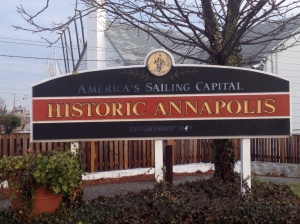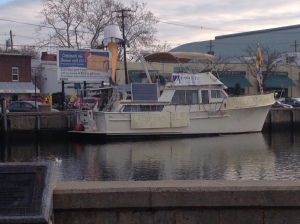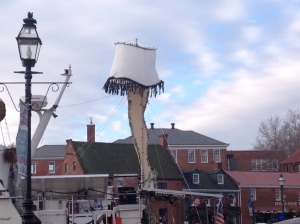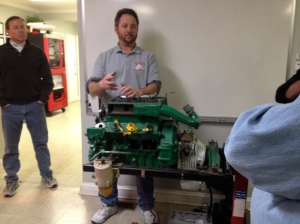Diesel Class in Annapolis;
If you are going cruising on a sailboat, or any boat, you will have to be self-sustaining. If you are already a sailor you will know what this means. If you are not a sailor it is like owning a home and being the painter, plumber, electrician, roofer as well as the cook, cleaner and HVAC specialist. You have to keep the boat floating as that is your home! On the average size cruising boat that might seem daunting, but never fear, there are ways we found to learn how to take care of our floating home. We have read books, gone to seminars and found experts to teach us. In some cases we just jumped in and did it. We also talked to a lot of fellow sailors and followed blogs of cruisers who are already out there. Most sailboats have an auxiliary engine, the "iron ginny." On bigger boats this can come in the form of a diesel engine. Now if you are like me the last time you worked on an engine was on your 1965 Mustang convertible with the old 289 in it. I have to admit that being a diesel mechanic was intimidating! To get over that we decided that I needed to go to a course to become a little more self-reliant.
Our good friends on s/v Honey Ryder, currently enjoying the eastern Caribbean, had gone to a diesel engine course in Annapolis MD. On their recommendation I also decided to attend the Annapolis School of Seamanship. The school offered both a basic intro to marine diesels and a more advanced class. I decided to take the basic class and then when we got a boat see if I needed the more advanced class. The other good thing about the class was that it was in Annapolis, the capital of the American Sailing world! If you are a sailor, and have never been, you must go. I was there in November so most of the boats were put away for the winter or had headed for warmer climes. But still a great place to wander around and soak up everything sailing. You know you are in a sailing town when you go into Starbucks on the City docks and the guy sitting next to you is wearing his Musto jacket and the lively conversation in the corner is by a group of people wearing coats with the name of their boat on it.
Since it was the end of November when I was there it happened to coincide with the annual boat parade. I missed that since I was staying Baltimore, but I did get to see what must have been the best in show boat.
OK back to why I was there, the diesel class. Prior to the class I had read Nigel Calder's Diesel book from cover to cover, I am glad I did! Before we jumped into learning how to be mechanics we needed to introduce ourselves to the class. When you are on the east coast, and doing something sailing related, being from Kansas always brings out the comments, "They have water out there?", "We know you have lots of wind." But this time as soon as I said I was from Kansas a skipper on the front row whipped around and said "Your Tom and Sabrina's friend." I looked at her and before I could stop myself I said "Captain Annie!" This was a friend that the crew of Honey Ryder had visited on their way north last fall and had posted the visit on their blog so I recognized her from that. It was really cool to meet her and enjoy the shared connection. We hope when we get to Charleston she is still there and if not enjoy sundowners where we find each other.
The two days of the class were really well presented and I learned enough to feel confident to do all the basic, routine maintenance on the boat and more importantly to be able to have a cognitive discussion with a "real" mechanic when things were beyond me. We started by reviewing how diesels work, how to do routine maintenance and then onto troubleshooting. It is hard to pick out which part was most useful. We learned which tools were best to have on board, identify all the parts of the engine, how to change all the fluids, belts and impellers. The class was very hands on and you got to work on several different brands. A few people in the class got to work on the same engines they had on their boats. The class ended with troubleshooting actual engine problems and getting them running. "Failure to Crank" what do you do? There were 3 stations where each engine had a different problem that you had to figure out and get the engine running.
This was a great class and well worth the time and money as it will help us not only look at an engine when we get a boat but also be able to keep one running when we are out there.





No comments:
Post a Comment